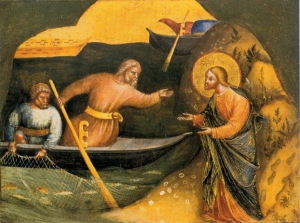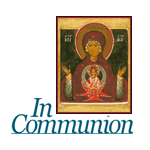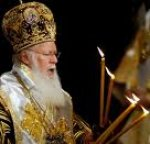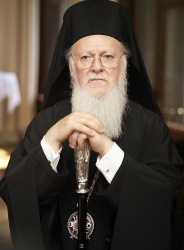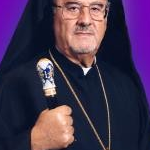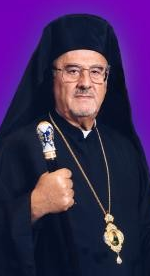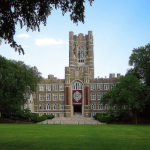
Deprecated: trim(): Passing null to parameter #1 ($string) of type string is deprecated in /home/aoiusa/public_html/wp-content/plugins/sexybookmarks/public.php on line 388
Deprecated: trim(): Passing null to parameter #1 ($string) of type string is deprecated in /home/aoiusa/public_html/wp-content/plugins/sexybookmarks/public.php on line 394
Deprecated: trim(): Passing null to parameter #1 ($string) of type string is deprecated in /home/aoiusa/public_html/wp-content/plugins/sexybookmarks/public.php on line 400
By Andrew F. Estocin
Each September a Sunday is set aside for Orthodox Parishes across the country to focus on the lives of college students. As students settle on campus for another academic year, it is certain that they will encounter a world full of questions about the very meaning of life and how best to live it. They will be challenged by ideas both ancient and new. Campus life will confront them with issues from what it means to be human to how to understand sex and marriage. Today’s college students are tomorrow’s parish council members, Sunday School teachers and youth group leaders. More importantly, they are tomorrow’s parents and how they understand their faith and the Church will shape Orthodox Christianity in America for years to come.
Keeping college students connected to the Church has been the focus of campus ministry for decades. However, the question must be asked: What kind of Church are we keeping college students connected to? Is it an ethnic Church that frequently worships in a language most do not understand? Is it the social Church of meetings, committees, conventions and festivals? Or is it the Church founded by Jesus Christ and lived by the Apostles –-a church that changes lives and since Apostolic times has “turned the world upside down” (Acts 17:5-7)?
Church leaders have underestimated college students for well over thirty years often avoiding the great questions that society asks in an effort to make the Church more comfortable and less in conflict with the culture. An example of this is the issue of marriage. Over the past year there has been a vocal debate on the meaning of marriage on college campuses across the country. However, despite the rich moral tradition of the Church, campus ministries have remained silent and expressed discomfort in addressing such issues often avoiding the moral debates that are taking place. The end result confuses more than it helps students live their faith.Questions and our ability to answer them matter. As Orthodox Christians, we do a great disservice to students when we avoid the questions society is asking. We do an even greater disservice when we do not share with them the answers to these questions that the Orthodox Church provides for fear of being shunned by popular culture. Young people do not want an Orthodox Church that is convenient or comfortable. They do not want a Church where moral questions are nuanced away as just “difficult issues.” This is not the courage of the Apostles and the Holy Men and Women of the Church who changed the world as we know it.
The Orthodox Church has been the greatest agent of human development in history. No institution has done more for humanity than the Church. Young people want to experience this legacy and this means presenting them Orthodox Christianity in all its demanding fullness. It means challenging students with a robust Orthodoxy that invites them to live the moral heroism and doctrinal witness of the saints. Orthodox Christianity calls upon us all to row upstream against the world.
Given this reality, here are five ideas every college student should consider as they explore their Orthodox Christian Faith on campus. These ideas can help each student better live a faith that turns the world upside down:
- Leadership begins at Liturgy: Orthodox Christian Leadership is best described as “Humility Before Honor” (Proverbs 14:3). Orthodox leaders are not to be found solely in meetings, conventions or committees. They are -first and foremost- to be found at liturgy. If you want to be an Orthodox Christian Leader you have to be a liturgical leader that is someone who sacrifices his time to consistently live and learn from the liturgical life of the Church. Liturgy is the first and best school of leadership in the Orthodox Church. Keeping connected to the Church means keeping connected to the Liturgy of the Church.
- Morality Matters: One of the great mistakes of modern times has been the idea that there is no such thing as a clear Orthodox Christian morality. This could not be further from the truth. Morality is an essential part of Orthodoxy and what distinguishes Christians from the world. St. Gregory of Nyssa said it best when he wrote: “If we truly think of Christ as our source of holiness, we shall refrain from anything wicked or impure in thought or act and thus show ourselves to be worthy bearers of his name. For the quality of holiness is shown not by what we say but by what we do in life.” Being Orthodox means being moral and embracing what the Church has taught for centuries on such issues as sex, abortion, capital punishment and marriage. It also means discovering that behind each “NO” the Church gives us there is a greater and more beautiful “YES”. Keeping connected to the Church means keeping connected to the moral teachings of the Church.
- Difficult Questions Lead To Great Answers: Every great question we encounter in life is a gift from God to deepen our knowledge of and relationship with Him. The greatness of Orthodox Christianity is seen when the Church responds to the great questions of society with wisdom, common sense and compassion. Keeping connected to the Church means keeping connected to the teaching of the Church and we cannot learn from the Church if we cannot question Her. By challenging the Church with loving questions we discover the depth and beauty of Orthodox Christian doctrine –doctrine that is often misunderstood. No question is irrelevant to the Church because every question can help us discover Christ again and again.
- Orthodox Christianity is Pro-Life: To identify oneself as an Orthodox Christian is to stand with a pro-life Tradition that is over two thousand years old. Human personhood and human rights begin at conception. The earliest Orthodox Christians understood this and distinguished themselves from those around them by protecting the weakest among us –including the unborn, the elderly and the disabled. Frederica Matthewes-Green says it best when she writes: “ Our Orthodox Christian heritage is absolutely opposed to abortion and child-killing from its very beginnings. This stand against abortion and exposure of infants is, in fact, one of the things that attracted people to the Christian faith.” Keeping connected to the Church means keeping connected to the great human rights struggle of our time that is the pro-life movement.
- Religious Freedom is Needed More Than Ever: Religious freedom is a vital issue that must be embraced for the Church to survive. Religious Freedom is more than just being able to go to Church on a Sunday. It is the right to live, express and share our religious beliefs. Religious freedom means being able to seek the truth while respecting the rights of others to do so as well. Being an Orthodox Christian is not a private opinion that gets switched on and off in our lives when convenient. It is not something that is reserved for Sundays but hidden throughout the week in the workplace or the classroom.
Eric Metaxas says it best when he writes: “Faith is either something that informs one at all times or it isn’t anything at all, really. When the …government tells its citizens that they can worship in a certain building on a certain day, but once they leave that building they must bow to the secular orthodoxy of the state, you have a cynical lie at work.” Keeping connected to the Church means being connected to our faith every day and understanding that Orthodoxy has a voice in how we all live our lives whether that be on a college campus or in The United States Congress.
College campuses today are very much like the world the first disciples experienced. They are worlds of competing ideas, moral confusion and an abundance of choices. This is the world in which the first Christians found themselves and yet it was a world they changed by embracing Jesus Christ with abandon and without reservation. If Twelve Apostles can alter the course of the Roman Empire then certainly each Orthodox Christian College Student has the ability to change the campus on which they live.
Perhaps the best advice for Orthodox College students comes from the second century Letter to Diognetus. It is in many ways the best guide for Orthodox Christian campus ministry. Consider these simple words as advice for every Orthodox college student:
For Christians cannot be distinguished from the rest of the human race by country or language or customs. They do not live in cities of their own; they do not use a peculiar form of speech; they do not follow an eccentric manner of life. . . They live in their own countries, but only as aliens. They have a share in everything as citizens, and endure everything as foreigners. Every foreign land is their fatherland, and yet for them every fatherland is a foreign land.
They marry, like everyone else, and they beget children, but they do not cast out their offspring. They share their board with each other, but not their marriage bed. It is true that they are “in the flesh,” but they do not live “according to the flesh.” They busy themselves on earth, but their citizenship is in heaven. They obey the established laws, but in their own lives they go far beyond what the laws require.
They love all men, and by all men are persecuted. They are unknown, and still they are condemned; they are put to death, and yet they are brought to life. They are poor, and yet they make many rich; they are completely destitute, and yet they enjoy complete abundance. They are dishonored, and in their very dishonor are glorified; they are defamed, and are vindicated. They are reviled, and yet they bless; when they are affronted, they still pay due respect. When they do good, they are punished as evildoers; undergoing punishment, they rejoice because they are brought to life. . . .
To put it simply: What the soul is in the body, Christians are to the world.
The second century world of Diognetus is not far from today’s college campus. Orthodox Christian college students deserve compassion, understanding and support as they live their faith. They deserve to meet the Church in all its fullness so that they may struggle, question and grow. This struggle is nothing new and is the essence of staying connected to the Church.
The challenge for each of us is whether not we will rise to responsibility of accompanying them on what is life’s most important journey –- a journey that can help students become the soul of the world and –like the Apostles before them — turn it upside-down.

Andrew Estocin is a lifelong Orthodox Christian and past participant in Orthodox Christian Fellowship. He received his theological degree from Fordham University. His articles have appeared in Touchstone, The Albuquerque Journal and Beliefnet.com He lives with his family in Albuquerque, New Mexico where they attend St. George Greek Orthodox Church.
